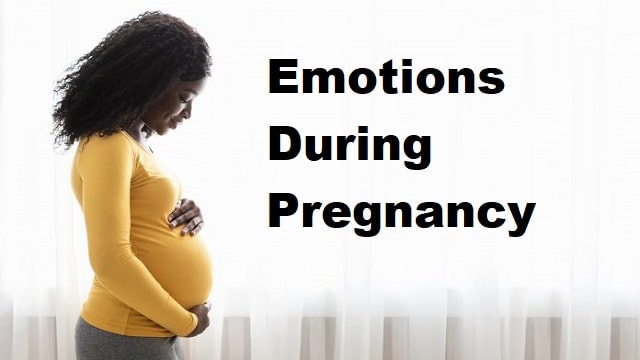Although every pregnancy is unique, certain changes are common to all normal pregnancies.
Knowing the physical and emotional changes that occur, helps women understand the pregnancy and have a positive attitude.
The first trimester
During the first trimester, the evidence of pregnancy is limited to the absence of menstruation and the positive pregnancy test, also confirmed by the specialist doctor. Some physical changes may appear, such as nausea and vomiting, fatigue or breast tenderness. These symptoms are frequent and vary in intensity. Emotional lability appears, and depression, for no apparent reason, are not unusual. Mood changes are due to the hormonal changes that pregnancy involves.
The main two hormones, that play a major role in pregnancy, are estrogen and progesterone. Mood changes vary from happiness to depression. Women often cry for minor reasons. If they are asked why they are crying, it is impossible for them to find the reason. This situation is very disturbing for husbands or partners, making them feel confused and inappropriate and because they feel powerless to stop their partner/wife from crying, they withdraw or ignore the problem.
Also Read:
What Happens First(1st) Month Pregnancy – Definition, Symptoms and Signs
What Happens Second(2nd) Month Pregnancy – Definition, Symptoms and Signs
What Happens Third(3rd) Month Pregnancy – Definition, Symptoms and Signs
Because pregnant women need a lot of love and affection, they will perceive them as unloving and uninvolved. Once the couple understands that these changes are physiological, it will be easier for them to go through this period, although to a certain extent, it will be a source of stress throughout the pregnancy. Initially, although the pregnancy was planned, the positive test will still be a surprise. The woman may have feelings of insecurity regarding the pregnancy. The feeling that it is not the right time for a child because the career will be compromised or financial stresses are common. Feelings of insecurity are related to assuming great responsibility, that of the mother, fear of the moment of birth, etc. The pregnancy does not seem to be real, until the 12th week when the heartbeat of the fetus can be heard with a Doppler device.
The second trimester
The second trimester is somewhat quiet. Morning sickness usually disappears during this trimester. The possibility of having a miscarriage decreases. The main attraction of this trimester is the perception of fetal movements, which begin during the 12th week. The perception of fetal movements triggers radical changes in the woman’s feelings towards the pregnancy. She now perceives the fetus as a real person and becomes delighted with the pregnancy, even if she hadn’t been like that before.
Also Read:
What Happens Fourth(4th) Month Pregnancy – Definition, Symptoms and Signs
What Happens Fifth(5th) Month Pregnancy – Definition, Symptoms and Signs
What Happens Six(6th) Month Pregnancy – Definition, Symptoms and Signs
Often, women are full of energy and feel better in the second trimester, often referred to as the “pregnancy glow”. Most women start wearing special clothes for pregnant women. They start asking their relatives and friends about the pregnancy, about the time of birth, they can even take courses about pregnancy and birth.
The feelings and anxieties experienced during pregnancy are intense and varied, being unique for each woman. These are part of the normal course of pregnancy.
Third trimester
The third trimester combines a feeling of pride with one of anxiety about what it will be like after the baby is born. Due to the prominent abdomen that betrays an advanced pregnancy, women will be offered a chair in a crowded room or some unknown people will offer to carry their luggage. Many women really need this help and will enjoy this privilege of pregnancy. On the contrary, some women will refuse these aids, for fear that these gestures prove that they are powerless or they will even feel offended by these gestures.
During the last weeks of pregnancy, feelings of restlessness and anxiety can worsen along with physical discomfort. I can have insomnia due to the impossibility of finding a comfortable position. Periodic contractions can cause discomfort, as can the position of the fetus in the uterus. Women can feel very vulnerable to rejections, losses or insults during this period. They may feel rejected and unwanted by their spouses/partners. The sexual needs of pregnant women can be satisfied by their partners/husbands through caresses, kisses, and hugs.
Also Read:
What Happens Seven(7th) Month Pregnancy – Definition, Symptoms and Signs
What Happens Eight(8th) Month Pregnancy – Definition, Symptoms and Signs
What Happens Nine(9th) Month Pregnancy – Definition, Symptoms and Signs
Pregnant women are eager for the discomfort caused by the pregnancy to end, but at the same time, they are worried about the reality of becoming mothers and the changes that will follow in the marital relationship and the family, especially how it will affect the other sibling’s family member. They may be worried about the pains of childbirth, especially if they have had an unpleasant experience with previous births or if they have never had a birth before and do not know what to expect. During the last month of pregnancy, women are also concerned about the health of the future child.

